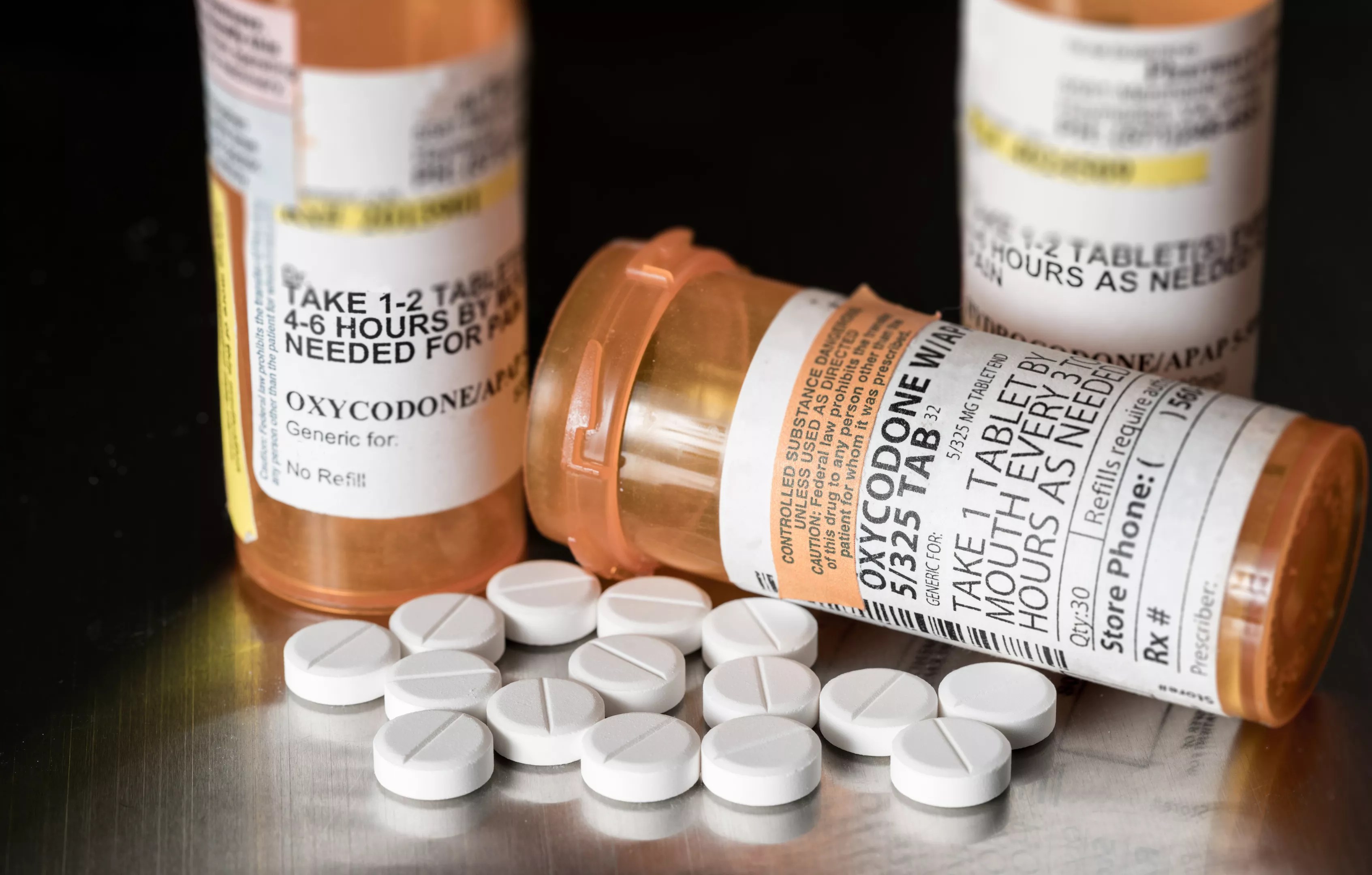
Shutterstock

Audio By Carbonatix
Purdue Pharma, the company that makes OxyContin, misrepresented the drug’s risks, potential for addiction and appropriate dosage schedules, according to a lawsuit filed Tuesday by Texas Attorney General Ken Paxton. Paxton wants the company to compensate the state for its alleged role in the opioid addiction crisis that led to more than 42,000 overdoses nationwide in 2016.
“As Purdue got rich from sales of its opioids, Texans and others across the nation were swept up in a public health crisis that led to tens of thousands of deaths each year due to opioid overdoses.” — Ken Paxton
“My office is holding Purdue Pharma accountable for fueling the nation’s opioid epidemic by deceptively marketing prescription painkillers, including OxyContin, when it knew their drugs were potentially dangerous and that its use had a high likelihood of leading to addiction,” Paxton told reporters at a press conference Tuesday. “As Purdue got rich from sales of its opioids, Texans and others across the nation were swept up in a public health crisis that led to tens of thousands of deaths each year due to opioid overdoses.”
The attorney general is suing Purdue under Texas’ Deceptive Trade Practices Act. Attorneys general in five other states – Florida, Nevada, North Carolina, North Dakota and Tennessee – filed similar lawsuits Tuesday, Paxton said. He said that as Purdue attempted to sell Texas doctors and patients on OxyContin and its other drugs, it “misrepresented or failed to disclose the risk of addiction to opioids,” falsely told doctors that there was no “ceiling dose” of the company’s opioid drugs, leading them to believe they could prescribe higher and higher doses indefinitely, and “made false, unsubstantiated representations about ‘pseudoaddiction.'” The company, according to Paxton, told doctors that common signs of addiction in patients were “actually signs that the patient need[ed] a higher dose of opioid.”
While the state is seeking extensive financial damages from Purdue, Paxton said Tuesday that his immediate goal is securing an injunction that would force Purdue to stop misrepresenting its drugs in the state.
In response to an interview request from the Observer, Purdue Pharma sent a statement that accuses the state of cutting off negotiations that could have led to a company partnership with Texas to fight the epidemic.
“We are disappointed that after months of good faith negotiations working toward a meaningful resolution to help the state of Texas address the opioid crisis, the attorney general has unilaterally decided to pursue a costly and protracted litigation process,” the statement said. “We vigorously deny these allegations and look forward to the opportunity to present our defense.”
Justin Nelson, the Democrat challenging Paxton as the attorney general attempts to win a second term in November, said that the suit is insufficient for a state already in the grip of a crisis.
“This lawsuit is just window dressing to cover up Ken Paxton’s failure to crack down on pill mills over the last three and a half years. It’s too little, too late for so many of the Texas families suffering from the opioid crisis,” Nelson said.
In October, Upshur County – northwest of Longview in East Texas – sued opioid manufacturers, including Purdue Pharma, becoming the first county in the state to do so. The suit, led by Dallas attorney Jeff Simon and Tyler lawyer Jack Walker, is set to be fought over similar ground as the state’s case. Neither Simon nor Walker was available when the Observer contacted his office Tuesday, but their suit echoes the claims made by Paxton and his team.
“Defendants convinced doctors that instead of being addictive and unsafe for long-term use in most circumstances, opioids were required in the compassionate treatment of chronic pain,” Simon wrote of opioid manufacturers.
In an interview with the Observer earlier this year, Simon chalked up the increase in opioid use over the last two decades to targeted marketing choices made by drug manufacturers.
“The marketing efforts of certain drug companies coalesced with what was called the pain management movement of the 1980s and 1990s, where the thesis was that the epidemic of untreated pain and the people who were suffering with pain was inhumane and the aversion that physicians had to prescribing narcotics to treat moderate pain should be modified,” Simon said. “They should be more liberally prescribing narcotics – opioid medication – as a standard treatment protocol.”
Paxton said that he “would not be surprised” if the state goes after other opioid manufacturers in addition to Purdue Pharma.